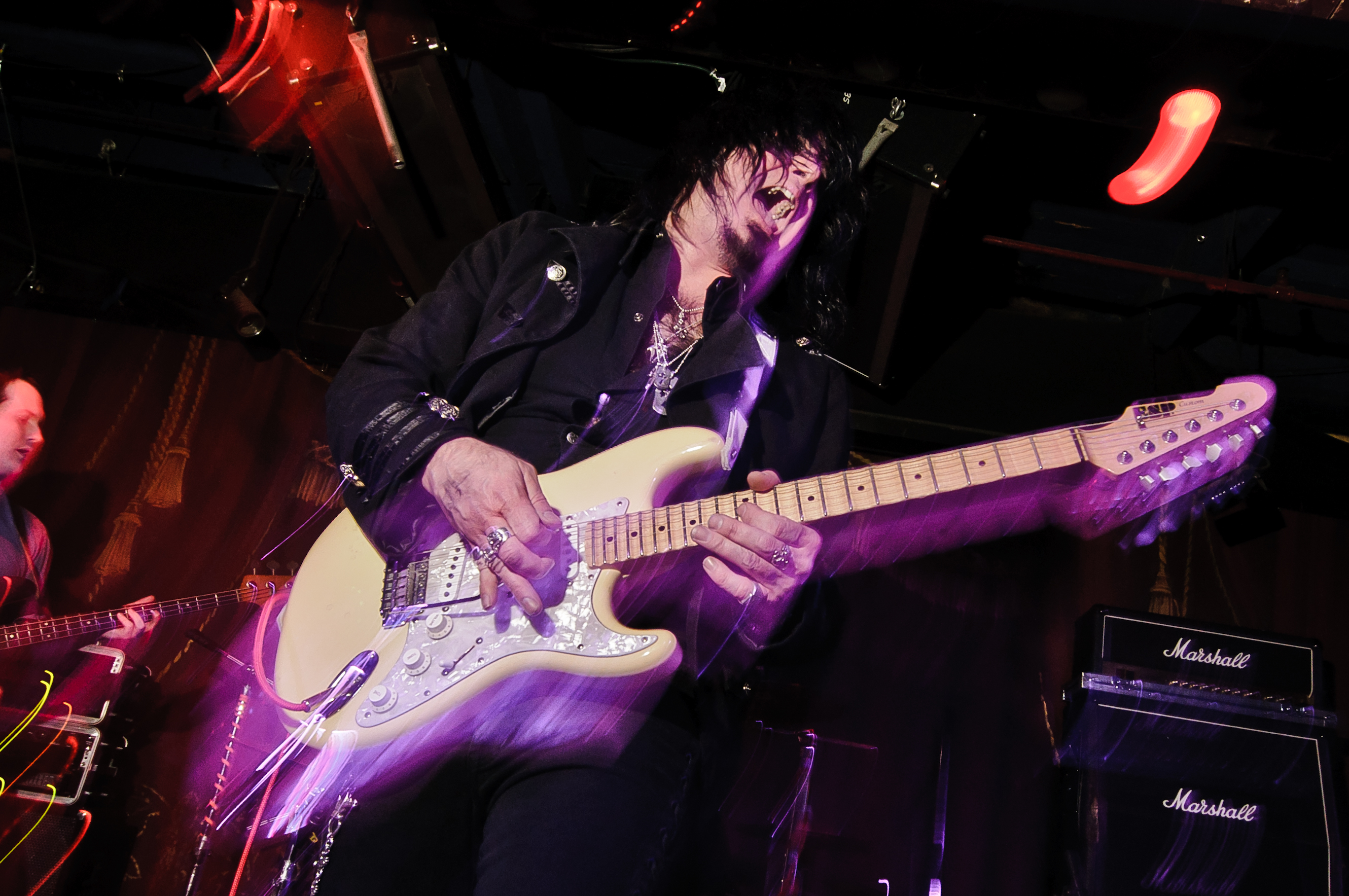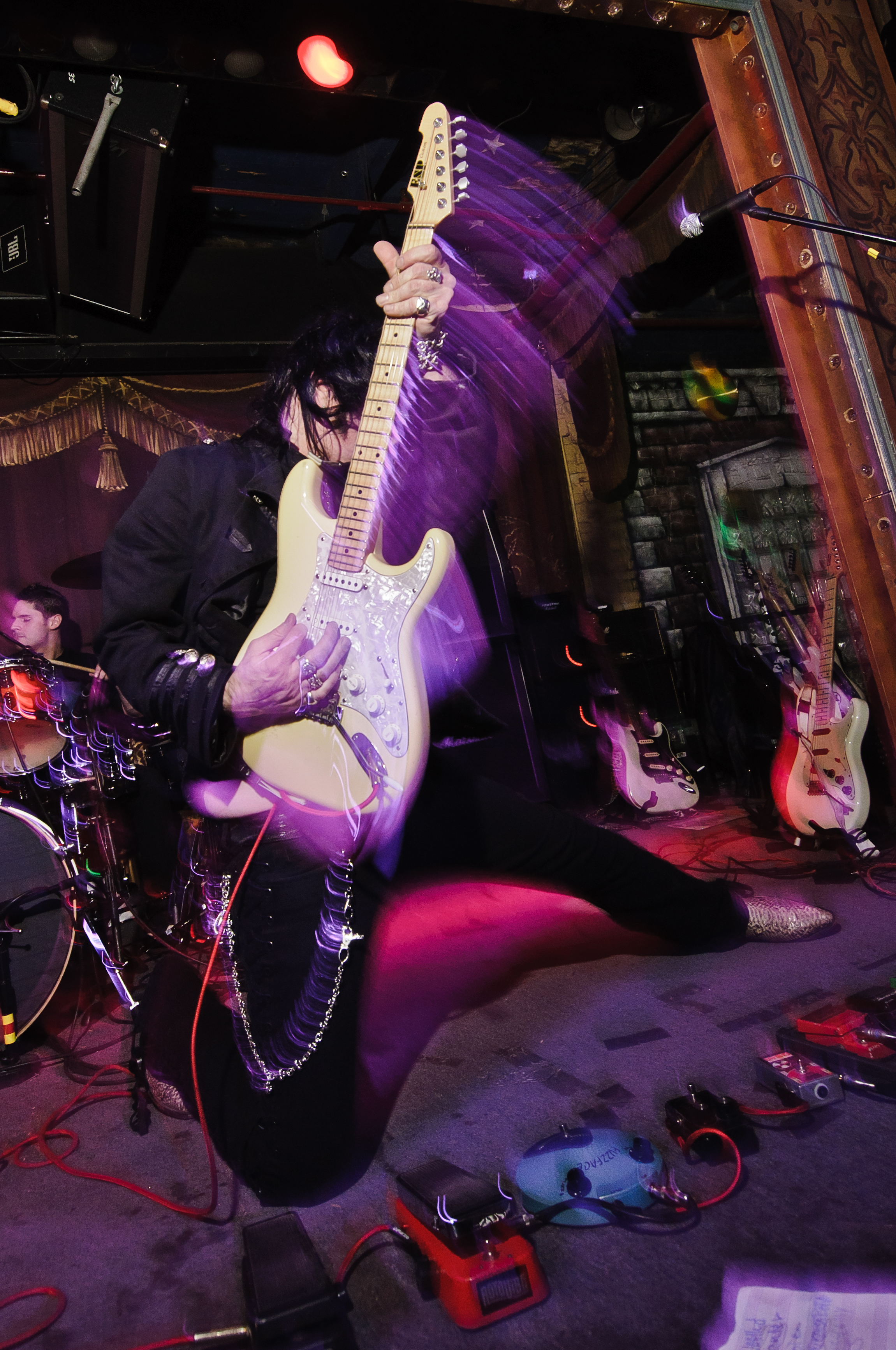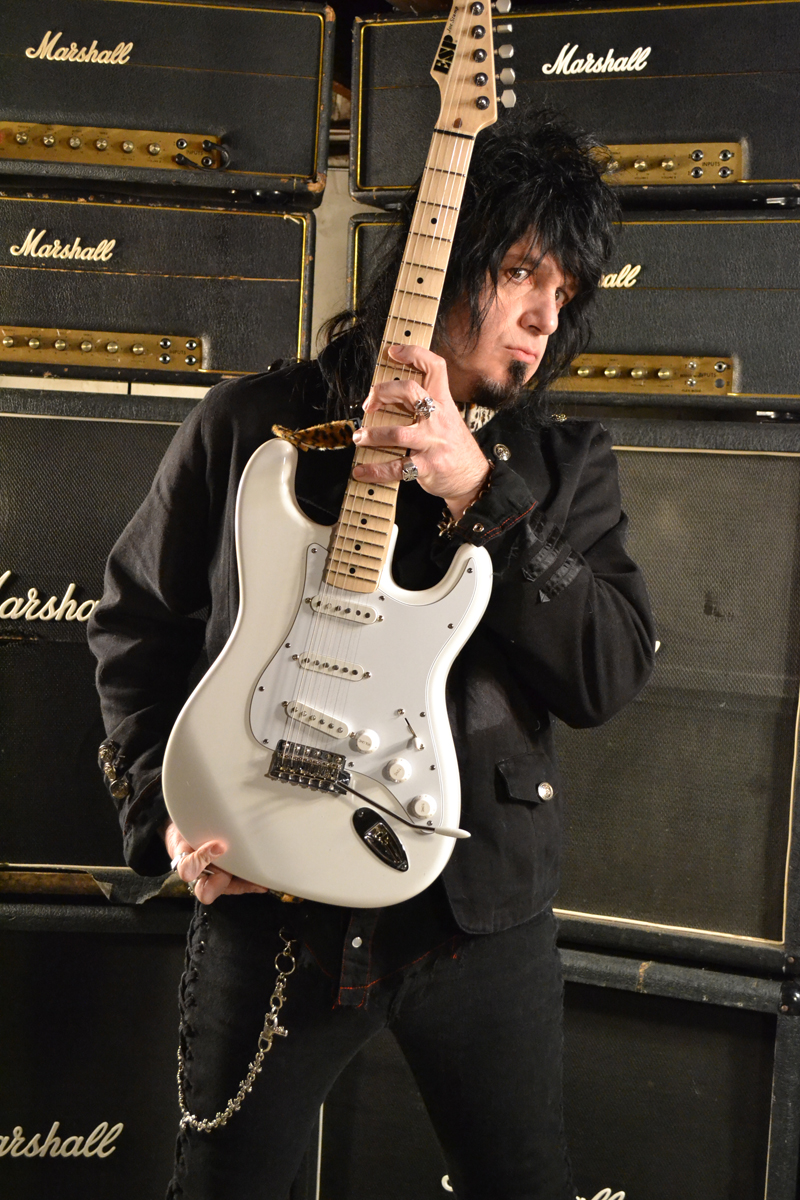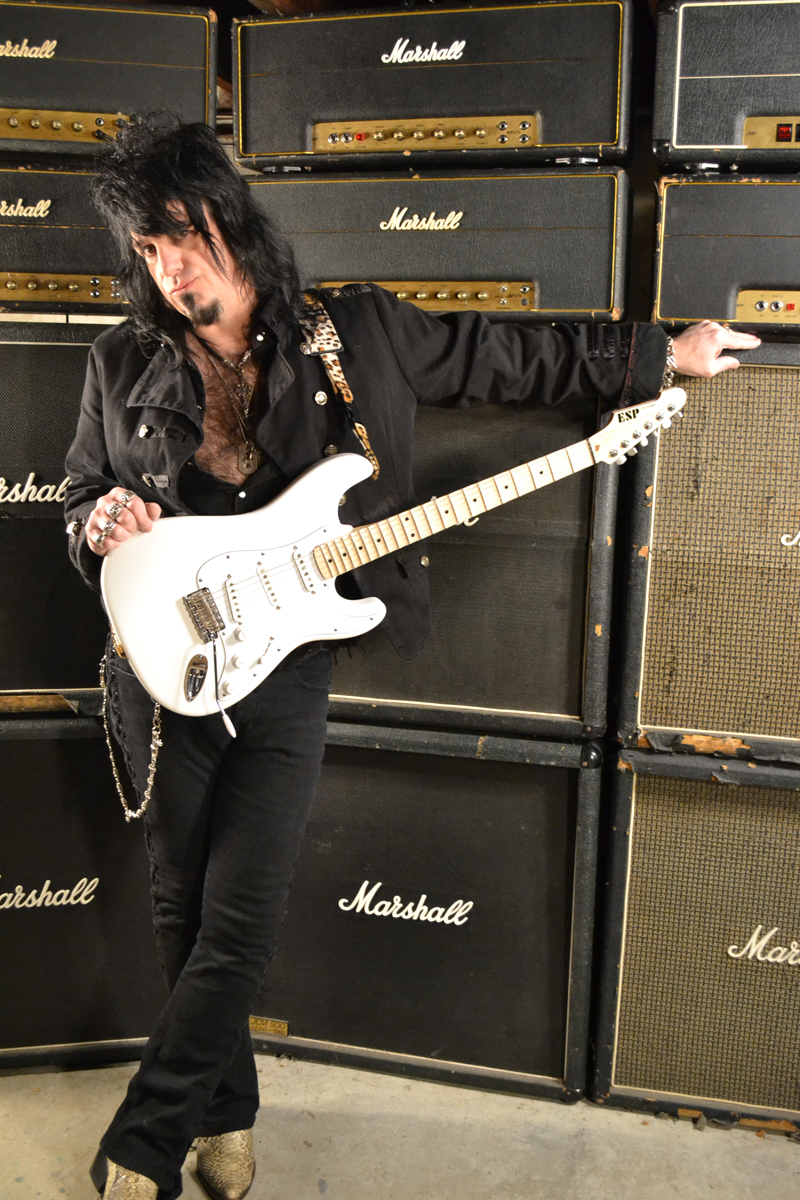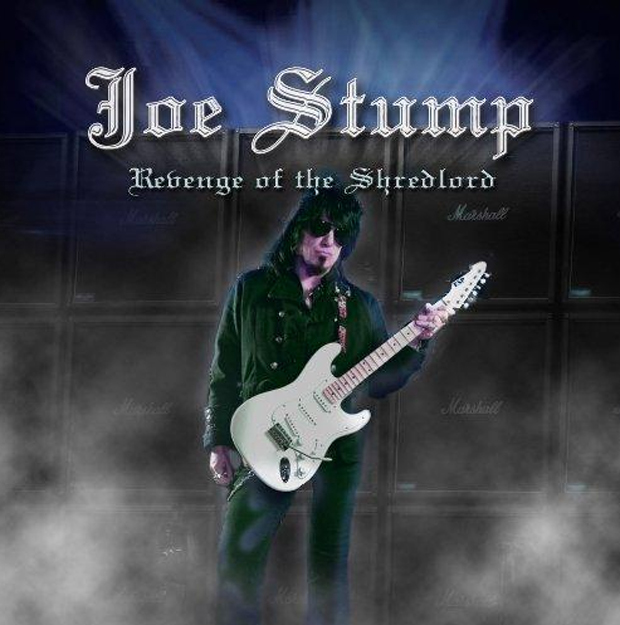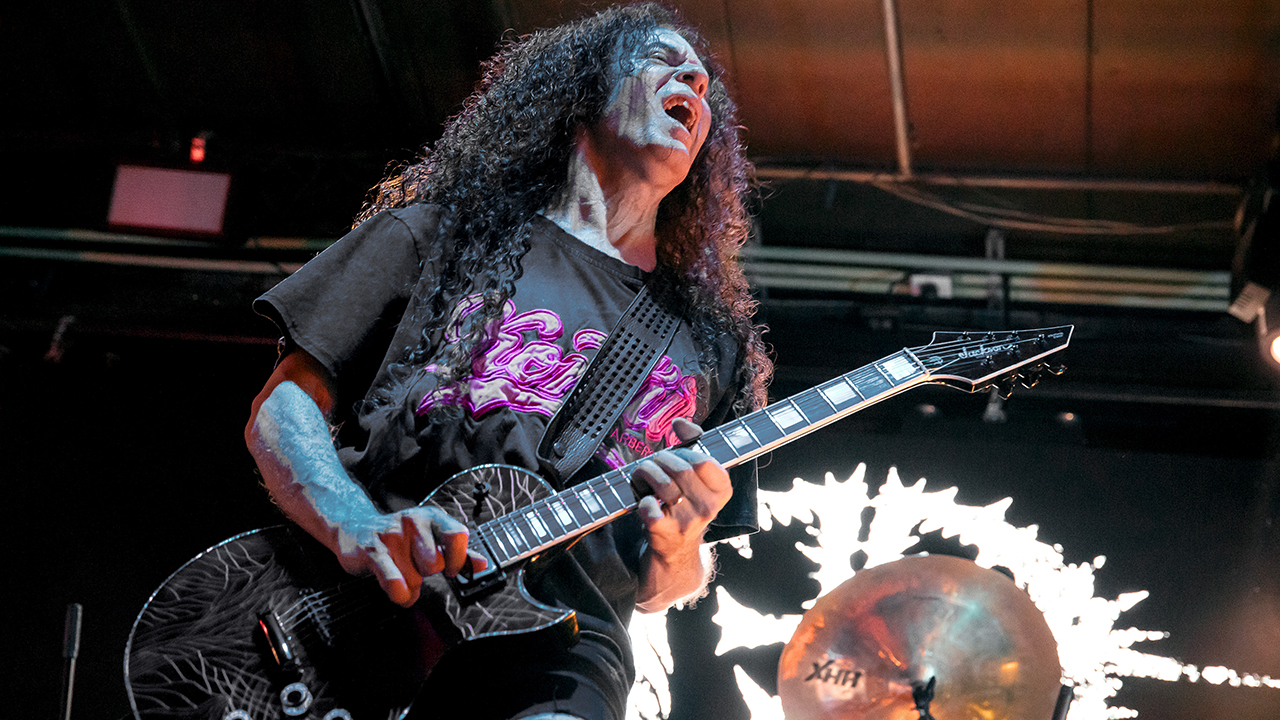Strat Outta Hell: Shredder Joe Stump Talks New Album, 'Revenge of the Shredlord'
All the latest guitar news, interviews, lessons, reviews, deals and more, direct to your inbox!
You are now subscribed
Your newsletter sign-up was successful

Joe Stump, who was ranked the Number 6 Fastest Shredder of All Time by Guitar One magazine, is a legend in many circles and has released an impressive number of solo and group efforts over the years.
But he recently released what might be his greatest album to date, Revenge of the Shredlord, via Lion Music in Europe.
Although Stump keeps busy — he's an associate professor at Berklee College of Music, and he just wrapped up a tour with Raven Lord — he recently found time to discuss practicing, his work ethic, the new album and a lot more.
GUITAR WORLD: How did you prepare for Revenge of the Shredlord?
I didn’t necessarily have a practice routine other than to just go into my workroom and start playing. Sometimes it might be some kind of groove I’m working on, and then I start to come up with different things to add to my playing vocabulary. Or I might try to improve upon things that are inside my vocabulary already. Then the ideas just start to flow.
Can you discuss the recording process for the new album?
On this particular record, I recorded all of the guitars at home. I had a bunch of the tunes composed and did everything at home, and I knew what all of the solos, melodies and harmonies were going to be. Then we put the bass and drums on afterwards in a studio. But I have a fairly modest home recording setup and get a killer tone. So while I can’t make a whole record at my place, I can certainly record killer guitar tracks. As you listen to the new record, all of the guitar tones you'll hear on there are killer and it's just with my modest recording setup.
All the latest guitar news, interviews, lessons, reviews, deals and more, direct to your inbox!
Grammy-winning engineer Ducky Carlisle (Buddy Guy, Johnny Winter) handled mixing duties. What was that like?
Ducky has worked on so many great records. He's also mixed a bunch of my past records. He lives like three doors down from me, too, so you can't get much can more convenient than that. He's done a ton of heavy-duty stuff and not really very many metal things. He's great sonically, and he's got a great place with a combination of killer analog gear and every single plug-in known to man. I am fairly in tune with what I want sonically, and he can get it. Plus he is a close friend, so we get to hang out when making a record together, which is also cool.
Take us back to your beginnings. How and why did you start playing?
I started playing when I was 10 growing up in New York. In the '70s I used to watch Johnny Cash's show and then Glen Campbell's show, and playing guitar always looked cool. So I played for a little bit and then I stopped playing. Then I took it up again when I was 13, all because of the hard rock that was out at the time — Deep Purple, Jimi Hendrix, Jeff Beck, UFO and so on.
Then, in my final year of high school, I discovered Al Di Meola’s Elegant Gypsy record, and that made me want to play guitar even more and really pursue extreme fast playing. Al is one of the forefathers of blazing playing. I had already gotten into stuff like Michael Schenker and Uli Jon Roth with the Scorpions' stuff like “Taken By Force." But when I heard “Race with Devil on Spanish Highway” and “Mediterranean Sundance” I was hooked.
One of the things that drew me to Berklee was that Al had studied there. So I went and studied jazz and fusion there and classical stuff, but then I went back to rock full on, halfway through Berklee. I got back to my roots with Blackmore, Uli Jon Roth, Gary Moore and Schenker. I love all of the European hard rock masters. I always tell everybody, “The only guy I listen to who is actually from America is Jimi Hendrix.”
You’ve been an associate professor at Berklee for a long time. What has it taught you?
When I’m working with players and discussing things, I'll occasionally come up with different ways to practice stuff. Inside my playing vocabulary, teaching may help me come up with some kind of variation on something. One thing I really do try to convey to my students is that I love to play and that I'm extremely motivated. I'm always playing, and I tell them that if you're here at Berklee, you should be sleeping, eating and breathing music. Waking up every day extremely excited about it. That's the way I was when I was young and I'm still that way. To me, if you don’t have that kind of enthusiasm, love and passion for it, then you should get out of the game, because there is no room for you there.
You have had some high-profile students over the years at Berklee — Gus G., Metal Mike, and more. How does that make you feel?
It's great that I’ve had contact with a bunch of players that have gone on to do well, and it's nice that I've inspired them and influenced them. But you know, those guys were great players and worked their asses off to get where they are. I'm extremely happy for them, and if I helped them in some way and they took some influence from the help and it turned up positive, that’s great. But no one gets there without breaking their balls. Everybody does it on their own to a certain extent.
What do you know now that you wish you'd known then?
Tough question. You know, the times change so drastically that it's tough to answer that. The music industry in general, as anybody would know, is full of highs and lows. Great things happen, and then you also have disappointments. So I rarely look back and say, "Well, I should have done that differently,” because many times things that are disappointments a lot of times are not within your control. You know, maybe you make a killer record and it’s not promoted properly, stuff like that. There are just so many things that are not in your control.
What would you say are your career highlights?
I’d say this record certainly is a crowning achievement. It is the pinnacle of my playing and composing as far as my solo career goes. It’s also been great in the past to be listed along with players who are heroes that I respect and look up to. Having great reviews of some of my past records in prominent publications also has been an honor.
And I've had many great shows. Whether it's on huge stages on European festivals or at small pubs, I’ve had great memorable shows at both. So it's tough for me to pinpoint specific things. Like back in 1994, which seems like ages ago, my second record came out and I remember it was a big deal for me, because Yngwie Malmsteen actually hung around and watched my set and let me know that he liked it, and we hung out backstage. So it was a huge deal getting to open up for one of my heroes and one of my main influences. He did a clinic once at Berklee years ago, maybe around 2007, and he's always been very nice to me and very cool. It's certainly no secret that he's one of my main influences.
Who do you think are some really underrated players out there?
One really criminally underrated player I really love is Walter Giardino from a band called Rata Blanca from South America. He’s a Blackmore disciple like myself, and he just rocks. He's got a great modern tone and great feel. He's somebody I really love to listen to. Another guy that's a buddy of mine that I think is a killer player that can shred his ass is Toby Knapp. Toby was on Shrapnel Records years ago and he's done a couple of solo records since. We trade CDs back and forth; he's a cool old-school shred guy that has elements of black metal and thrash in his stuff. I really enjoy listening to him.
Any advice for younger players who want to get really good at guitar and have a career in music?
The best advice I can give anybody is that in this day and age, there is no exact plan in the industry, and everything changes fast and drastically. The bottom line is the more you play and the harder you work, the faster you’re going to get better. There are no shortcuts or technologies that can save you from the work that it takes to obtain skill. And there is no substitute for completely dedicating yourself to the guitar.
Dave Reffett is a Berklee College of Music graduate and has worked with some of the best players in rock and metal. He is an instructor at (and the head of) the Hard Rock and Heavy Metal department at The Real School of Music in the metro Boston area. He also is a master clinician and a highly-in-demand private guitar teacher. He teaches lessons in person and worldwide via Skype. As an artist and performer, he is working on some soon-to-be revealed high-profile projects with A-list players in rock and metal. In 2009, he formed the musical project Shredding The Envelope and released the critically acclaimed album The Call Of The Flames. Dave also is an official artist endorsee for companies like Seymour Duncan, Gibson, Eminence and Esoterik Guitars, which in 2011 released a Dave Reffett signature model guitar, the DR-1. Dave has worked in the past at Sanctuary Records and Virgin Records, where he promoting acts like The Rolling Stones, Janet Jackson, Korn and Meat Loaf.
